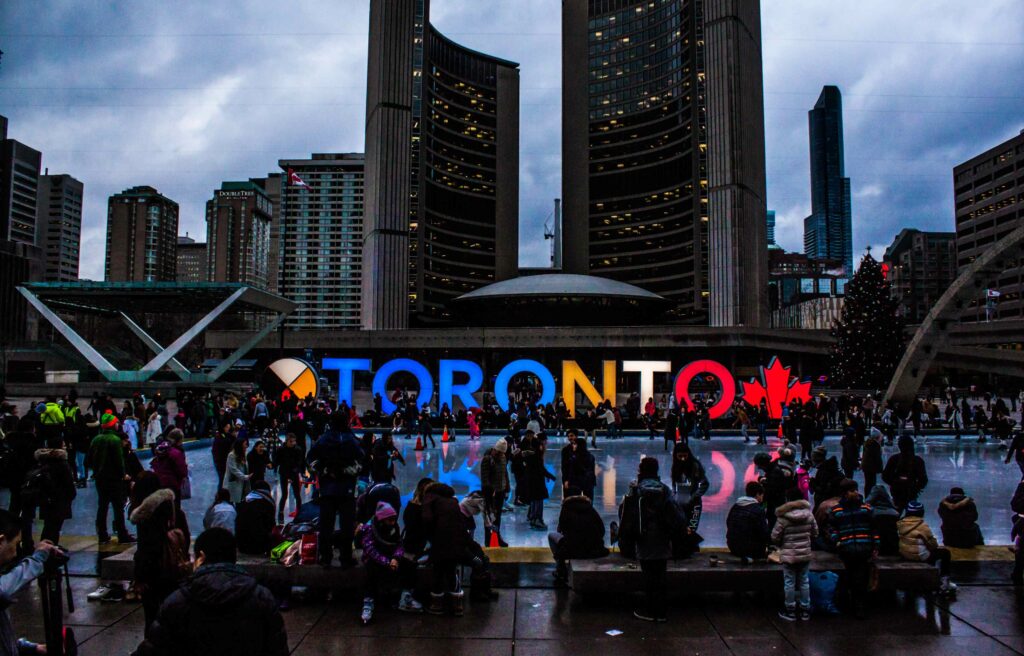Whether you’re relocating for an exciting new adventure or due to work or family commitments, it’s normal to experience relocation anxiety when relocating to a new city or state. This anxiety often stems from the uncertainty and changes associated with uprooting your life and starting over in an unfamiliar environment.
Recognizing that these feelings are a natural response to a significant life transition is essential. Acknowledging your emotions and preparing for the move can significantly reduce stress and help you embrace the new opportunities that come with relocation. This post sheds light on why one might feel relocation anxiety and offers tips to help cope with it.
1. Start Planning Early
The earlier you start planning your move, the less overwhelming it will be. Create a relocating checklist of things you must do before, during, and after the move, like sorting out belongings, arranging professional relocating services, and setting up utilities. Planning to relocate early can save costs, as relocating rates may rise by 10-20% during peak season (May/September).
The 80% of people who underestimate packing time feel rushed and stressed; starting to relocate early avoids this. Proper labeling, a crucial aspect of early planning, can save 1-2 hours in unpacking at your new home, providing control and reducing relocation anxiety. Early preparation aids in efficiently sorting items, simplifying the relocating process, and reducing anxiety.
2. Research Your New Area
Before relocating, familiarize yourself thoroughly with the area—research local amenities, transportation, and community activities to feel more at home. Dive into social media platforms like Facebook groups, Instagram pages, and Twitter feeds specific to your new location for comprehensive insights into the local culture and lifestyle. Engaging in regional online forums and community boards can provide valuable tips and advice from residents, further easing your transition.
Investigate schools, healthcare facilities, and shopping options if they’re essential to you. Seek out potential leisure spots like parks, cafes, and cultural centers on platforms like Yelp and TripAdvisor to quickly establish a personal connection with your new surroundings. Explore local event calendars and community bulletins to stay informed about upcoming activities and social gatherings in your area.

3. Connect with People
Try to establish connections in your new area before you move. Social media, online forums, local networking events, and joining local clubs can be great tools. Knowing friendly faces or like-minded individuals are waiting for you can significantly reduce relocation anxiety. Consider contacting colleagues or acquaintances who may already reside in the area for valuable insights and support.
Also, consider joining local clubs or organizations related to your interests, as this can help you form meaningful connections in your new community. Reaching out to colleagues, acquaintances, or friends who may already reside in the area can provide valuable insights and support. Attending community events helps you integrate into your new environment.
Related: What are Effective Strategies to Minimize Costs and Risks in Global Talent Relocation?
4. Keep a Positive Mindset
Focus on the positive aspects of the move. Whether it’s career growth, a better living environment, or new opportunities, a positive mindset can help manage anxiety. Surround yourself with motivational quotes, affirmations, or a vision board to stay inspired during the transition. Practice mindfulness techniques such as meditation or deep breathing to stay centered and calm.
Seek support from friends and family to reinforce your optimistic outlook and maintain a sense of excitement about the changes ahead. Share your goals and aspirations with them to stay motivated throughout the relocation process. Remember, a positive attitude can be a powerful tool in reducing anxiety, so embrace it fully. Consider consulting a therapist if maintaining a positive mindset is challenging.

5. Pack Smart
Organize and pack your belongings thoughtfully to simplify unpacking. Label your boxes clearly, prioritize essential items, and keep them easily accessible. It reduces stress during the move and when you arrive at your new home and ensures that you have immediate access to critically important items like toiletries, medications, and essential documents. Create an inventory list for each box to streamline unpacking.
Consider packing a separate “first-day essentials” box containing items you’ll need immediately upon arrival, such as a change of clothes and basic kitchen supplies, to make settling in even smoother. Use a mobile app or a simple spreadsheet to track what’s in each box, making it easier to locate specific items when needed. Color-code boxes for room matching simplify unpacking further.
6. Say Proper Goodbyes
Consider bidding farewell to your friends, family, and beloved places in your current area. Closure is essential for emotional well-being during a transition. Saying goodbye to loved ones and places can significantly reduce stress and anxiety during a transition, according to a study by the University of California, Berkeley. Express gratitude for the people and experiences in your current location.
Taking the time to reminisce and express gratitude for the memories you’ve created can provide a sense of closure and positivity as you embark on your new journey. Consider organizing a small farewell gathering or dinner with close friends and family to celebrate your time together and create lasting memories. Stay connected digitally to maintain relationships despite the distance.

Also read: The 10 Best Pet-Friendly Cities to Move with Your Furry Friends
7. Create a Comforting Environment
Once in your new home, set up a comfortable and familiar space. Surround yourself with favorite items like photos, books, or decorative pieces that make you feel at home. Consider incorporating soothing colors and scents further to enhance the tranquil atmosphere of your new surroundings. To add a personal touch, display artwork or crafts that are sentimental to you.
Invest in comfortable furniture and bedding to ensure a restful night’s sleep, contributing to your overall well-being as you settle into your new environment. Arrange your space to maximize natural light, creating a bright, inviting ambiance that promotes positivity and comfort. Additionally, consider adding cozy blankets and throw pillows to create a welcoming and relaxed atmosphere in your living spaces.
8. Establish New Routines
Routines provide a sense of structure and normalcy, which can be incredibly grounding in a new environment. They help you build a rhythm to your days, reduce decision fatigue, create opportunities for connection and enjoyment, and foster a sense of control over your life during a period of change.
The Power of Routine:
- Reduces Stress: Studies show that having routines can lower cortisol levels, the stress hormone.
- Boosts Productivity: Routines help you get into a flow state, allowing you to accomplish more with less effort.
- Improves Sleep: Consistent sleep and wake times, part of a routine, contribute to better sleep quality.
- Combats Loneliness: Regular social interaction, facilitated by routines like joining a club or group exercise class, can ease feelings of loneliness.
Finding Your New Groove:
Your new routines don’t have to be elaborate or time-consuming. Start small and focus on activities that bring you joy and a sense of belonging.
Here are some ideas to get you started:
- Morning Ritual: Begin your day with a mindful practice like meditation, journaling, or a brisk walk.
- Explore Your Surroundings: Take a daily walk to discover hidden gems in your new neighborhood.
- Connect with Others: Join a local club, attend community events, or start conversations with friendly faces.
- Embrace Local Flavors: Sample your new town’s cuisine and coffee shops.
- Get Creative: Dedicate time to hobbies or interests that bring you fulfillment.

9. Seek Professional Help if Needed
If relocation anxiety is overwhelming and significantly affecting your daily life, don’t hesitate to seek help from a mental health professional. They can provide strategies, guidance, and support, much like the comprehensive solutions offered by Relo.AI, to manage your feelings and ensure a smoother transition. Seeking a mental health professional is a proactive step during relocation.
Reaching out to a therapist or counselor can offer a safe space to discuss your concerns, develop coping mechanisms tailored to your unique situation, and gain valuable insights into managing relocation anxiety. Remember, seeking professional help is a proactive step towards better mental well-being during a relocation, and it’s a sign of strength to prioritize your emotional health.
10. Stay Connected with Your Old Community
Maintaining connections with your old community can provide emotional support. Regular calls, texts, or social media interactions can help you feel less isolated. Consider scheduling virtual gatherings or reunions with friends and family from your previous location to keep those bonds strong despite the distance. These connections can be a lifeline of familiarity and warmth as you adapt to your new surroundings.
Sharing updates and memories with your old community can foster a sense of belonging and comfort during relocation. Remember, your past relationships can enrich your life even as you embark on new adventures, and staying connected can be a source of joy, encouragement, and support. Maintaining these connections can provide a valuable sense of continuity amid change.
Recommended read: Winter Move? Here’s How to Ensure Warmth and Safety for Everyone and Everything
11. Explore Your New Surroundings
Take the time to explore your new area thoroughly. Discovering local attractions, parks, restaurants, and cultural activities can be exciting and help you connect deeply with your new home. Additionally, keep an open mind and be genuinely curious about the unique aspects of your new environment, embracing the countless opportunities for adventure, personal growth, and enrichment.
Consider joining community events or groups to meet new people who share your interests and passions. Exploring your surroundings and engaging with the local community can enrich and fulfill your relocation experience. By actively participating in local activities and building new connections, you’ll create a sense of belonging and make your new area feel like a welcoming and vibrant place to call home.

12. Give Yourself Time
Adjusting to a new place takes time. Be patient and allow time to adapt to your new surroundings and lifestyle. Acknowledge that it’s normal to experience a range of emotions during this transition, including nostalgia or longing for your old home. These emotions are a natural part of the relocation decision, and permitting yourself to feel them can be crucial in finding comfort and contentment in your new life.
Give yourself the space to process these feelings, and remember that with time, you’ll gradually build a sense of comfort and belonging in your new environment. Embrace each day as an opportunity for growth and discovery, knowing that your journey toward feeling at home is rewarding. Through this adventure, you’ll create a new chapter filled with enriching memories.
Begin Your Relocation Anxiety-Free with Relo.AI 🏠
Embark on your relocation journey with ease, harnessing the extensive support provided by Relo.AI to combat relocation anxiety.
Our committed team prioritizes a seamless and anxiety-free relocating experience, meticulously handling each facet of your transition. 🚚
Schedule a consultation to discover relocation solutions that align with your aspirations and way of life, specifically designed to reduce relocation anxiety.
Contact us today for unparalleled assistance and expert advice to navigate this new chapter smoothly and start your stress-reduced 😊 relocation adventure.
Final Note
Relocation anxiety is a natural response to a significant life change. With these 12 tips, you can manage and mitigate the stress of relocating. It’s okay to feel anxious, and with time and effort, you can turn your new environment into a comforting and exciting place to call home. Embracing the journey and viewing it as an opportunity for growth and new experiences can transform your perspective.









